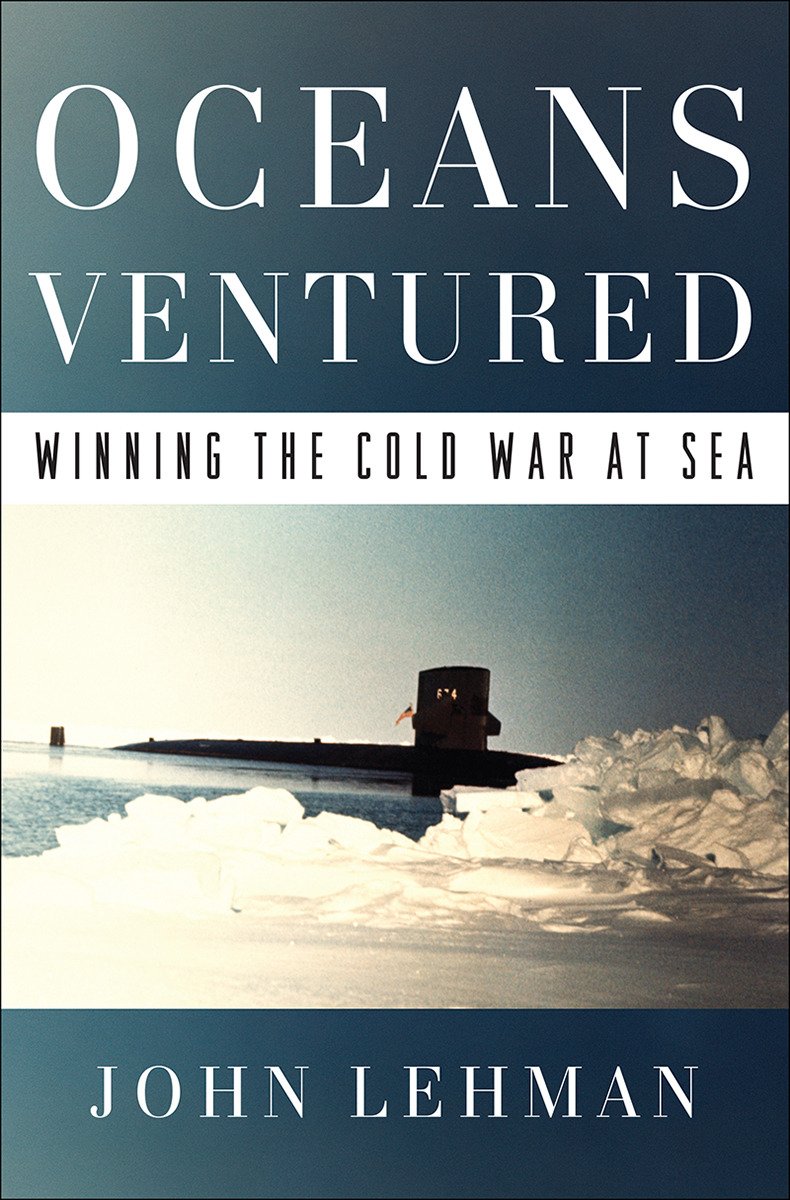Oceans Ventured: Winning the Cold War at Sea
John Lehman
 On November 9, 1989 the Berlin Wall came down, symbolizing the collapse of the Soviet Union and its defeat in the Cold War. Economic exhaustion precipitated by its strenuous efforts to match and surpass the military prowess of the United States abruptly brought the Soviet Union to its knees, ending a forty-year conflict.
On November 9, 1989 the Berlin Wall came down, symbolizing the collapse of the Soviet Union and its defeat in the Cold War. Economic exhaustion precipitated by its strenuous efforts to match and surpass the military prowess of the United States abruptly brought the Soviet Union to its knees, ending a forty-year conflict.
John Lehman’s Oceans Ventured tells the story of one of the most important factors in this victory. The United States Navy expanded and updated its forces, developed cutting edge technological solutions, and demonstrated a consistent ability to project overwhelming power forward into waters the Soviet Union regarded as sacrosanct. In response, the Soviet Navy was compelled to demand an ever-increasing share of the nation’s budget to build up its own strength to repel the intrusions. When combined with parallel accretions to its already huge land and missile forces, these expenditures overwhelmed the Soviet Union’s economic resources and led to its collapse.
Dr. Lehman’s narrative often reads like a thriller. Because of his background as a frontline naval aviator, he is able to project the tension and excitement of these operations into the waters of the Soviet bastion. Simultaneously, his academic, administrative, and policy background enables him to incorporate the critical political and doctrinal components that underlay the development and execution of the United States Navy’s forward power projection mission. In addition, his personal participation as Secretary of the Navy in the process lends particular strength and authority to the narrative.
This latter, however, is also a limitation upon Ocean Venture’s ready acceptance as a definitive source. Because of Lehman’s direct involvement in the story, it is both intensely personal and highly political. Lehman can tell an authoritative story but, because much documentation pertinent to the narrative remains classified, he cannot use it to underwrite his thesis and no outsider can access the evidence to validate or discredit him. This cuts to the heart of his proposition that there was a radical change in naval doctrine with the Reagan administration. It may well be true, but the inaccessibility of much of the evidence to support it makes it an assertion rather than a fact.
Oceans Ventured vividly and powerfully tells the story of the Navy’s indispensable role in winning the Cold War. It has serious limitations, in part from secrecy restrictions, but it also is a superb starting point for further research and discussion on this very important topic.
- New York: W.W. Norton & Company, 2018
- 6-1/2” x 9-1/2”, hardcover, xxix + 330 pages
- Photographs, notes, bibliography, index. $27.95
- ISBN: 97803932542549
Reviewed by Patrick Clark, Northeastern University
